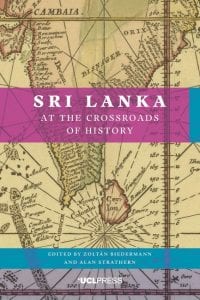Author Experience: Nick Piercey
By Alison Fox, on 28 June 2018
 Today’s guest post is by Nick Piercey, author of Four Histories about Early Dutch Football 1910–1920: Constructing Discourses , Post-Doctoral Research Associate in Sport History in the Department of Exercise and Sports Science at Manchester Metropolitan University and an Honorary Research Associate in UCL’s Department of Dutch in the UCL School of European Languages, Culture & Society.
Today’s guest post is by Nick Piercey, author of Four Histories about Early Dutch Football 1910–1920: Constructing Discourses , Post-Doctoral Research Associate in Sport History in the Department of Exercise and Sports Science at Manchester Metropolitan University and an Honorary Research Associate in UCL’s Department of Dutch in the UCL School of European Languages, Culture & Society.
In September 2016, my first book Four Histories about Early Dutch Football 1910–1920: Constructing Discourses was published by UCL Press and 3 years after the first books were published I am delighted that my work is a very small part of the nearly 1,000,000 UCL Press downloads from around the world. I am equally delighted that I have been given the opportunity to briefly reflect on my experiences of publishing with UCL Press with these milestones in view. As the figure suggests, the first 3 years have met with great success and to have such a large number of downloads is testament to the great work the team at UCL Press have put in. Indeed, my abiding memories of the process of publishing a book (if I ignore the sudden insecurities and panic over where to put commas) is the support given by each member of the team from proposal to publication. As a first-time author, the process of publishing research was initially daunting, however, at each stage of the process, members of the UCL Press team were on hand to ensure that mini-panics and concerns did not erupt into a full-blown crisis. It seems fitting to me that I should finally get the chance to thank Chris, Alison and Jaimee by name for their help in a way that I could not do in my book (I blame the publishing deadline!)
Beyond the personal support the team offers before, during and after publication, I believe that UCL Press’s new model of Open Access Publication is something that all academics should welcome. Looking back on a blog I wrote in 2016, I remain as convinced now as I was then that UCL Press’s commitment to freely accessible, innovative, world-leading publications is something that will revolutionise academic publishing. Hopefully more universities and presses will see the benefit of making new knowledge available to all and providing young scholars with a path to publication. From a personal perspective, the opportunity to publish my work in both Open Access and low-cost hard copies has allowed my ideas to spread much further and faster than they would have done with a traditional academic publishing model. In a time when academic quality is often measured by metrics and statistics, being able to demonstrate that my work has been viewed around the world in sizable numbers is a significant advantage. As more universities and funding bodies require research to appear in an Open Access format, to have a book published by UCL Press that fulfils these requirements is also enormously beneficial (having a ‘free book’ is also a pretty useful thing at conferences too!)
It is, I think, not often that such ambitious projects can provide both practical results and remain focused on providing a personal service, which can ensure that new research and researchers find their voice. I hope that I can be part of this in the future and contribute towards the next 1,000,000 downloads.
Author Bio
Nick Piercey is a Post-Doctoral Research Associate in Sport History in the Department of Exercise and Sports Science at Manchester Metropolitan University and an Honorary Research Associate in UCL’s Department of Dutch in the UCL School of European Languages, Culture & Society.
 Close
Close


